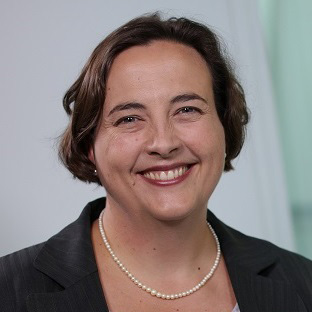Kym Baker: Leadership in biotech manufacturing
Kym Baker is literally helping build our biotech future. As General Manager of Patheon Biologics, a brand of Thermo Fisher Scientific, Kym leads a team that manufactures biotherapeutics for clients around the world. “Think of us as high-end brewers,” she says. “But instead of beer, we use humanised cells to manufacture human proteins used in therapies for cancer, rheumatoid arthritis, macular degeneration, and more.”
Thermo Fisher’s clients range from Australian and APAC-based companies to global pharmaceutical giants. Since their launch over a decade ago, the Brisbane site has supported 53 different clients. Now in their 11th year of current Good Manufacturing Practice (cGMP) certification, they provide critical manufacturing for clinical trials and post-commercialisation treatments. “Our clients bring us the recipe, and we manufacture their products to strict regulatory standards,” Kym explains. The work is high stakes, with products valued in the millions.
A career defined by determination and growth
Kym’s journey began at The University of Queensland, where she studied biotechnology during a period of rapid industry growth. “The Australian government had an incredible 200% R&D tax credit at the time,” she recalls. “Biotech was booming – we were competitive with California.” When the tax credit was scrapped, the industry quickly contracted.
Facing limited opportunities, Kym pursued a PhD with CSIRO at ANU before heading overseas. After 3 postdocs in the UK – each focused on solving biotech industry challenges – she faced 32 unsuccessful job applications before landing her first industry role. “I didn’t realise you shouldn’t submit an academic CV for an industry job,” she says. Now, she mentors others on building strong CVs and landing roles in biotech.
Kym eventually joined Patheon in 2015 into her current role as General Manager. Thermo Fisher acquired Patheon in 2017. “Before Thermo Fisher, the site had two different owners in three years. But now we’re part of something stable, which means we can focus on growth.”
A collaborative industry driving change
Kym believes Queensland’s biotech community is unique in its collaboration. “Australia’s not big enough for competitive silos,” she says.
“We need to identify synergies and find ways to augment each other.”
She highlights the local biotech ecosystem as an example of this teamwork. “PEF at UQ is the first stage in the translational science journey, followed by the National Biologics Facility, then TRI’s Translational Manufacturing Institute (TMI). We’re the final step, manufacturing products for clinical trials and beyond. We need each stage to keep innovation – and IP – in Australia.”
Her involvement with organisations like LSQ and advisory roles with UQ departments reflects her dedication to strengthening Queensland’s biotech sector. “We’re all connected here, and that collaboration is what helps us thrive.”
Navigating COVID-19 and building resilience
COVID-19 put biotech manufacturing under extreme pressure, and Thermo Fisher played a key role in vaccine production. “We couldn’t always get the raw materials we needed,” Kym recalls. “There were moments when the US Biomedical Advanced Research and Development Authority (BARDA) seized shipments at the border to prioritise American production. We had to create contingency plans for every scenario.”
Despite the challenges, Thermo Fisher adapted. The company expanded capacity by 40% to meet demand. “It showed the world that the ‘geeky scientists’ were actually a huge value-add,” Kym says. “The pandemic pushed biotech into the spotlight in a way we hadn’t seen before.”
Empowering the next generation
For Kym, her proudest achievement is her team. “I’ve spent years building a team of passionate professionals who love what they do. If I’ve done my job right, they won’t need me one day – and that’s the goal.”
Thermo Fisher encourages staff to connect with the impact of their work. “We share videos and updates from patients whose lives have been changed by the therapies we manufacture,” she explains. One standout example was a biosimilar drug that improved side effects compared to the original treatment, helping patients manage their condition more comfortably.
Kym also emphasises the importance of mentoring and developing female leaders.
“When I studied, I was often the only woman in the room. That’s changing now, but women from culturally diverse backgrounds still face challenges.”
Advice for future biotech leaders
Kym’s advice for students is simple: resilience and adaptability are key. “Biotech is a future-proofed industry,” she says. “It’s driven by creativity and innovation – things AI can’t replace.”
She encourages students to develop computational skills, understand business dynamics, and build meaningful professional networks. “Don’t just network for the sake of it – be helpful and add value to others.”
Finally, Kym stresses the importance of balance. “I’m not looking for the student with the highest GPA. I want people who know how to manage stress, take feedback, and grow from failure. That’s what makes a strong professional.”
The future of biotech in Queensland
Kym is passionate about keeping Australian biotech IP onshore. “I want to see more Australian innovations stay in Australia and become profitable,” she says. While large pharma companies play an essential role, she believes strengthening the local ecosystem will allow more ideas to thrive.
“Biotech in Australia is growing,” she says. “If we can keep investing in collaboration, infrastructure, and talent, we can make Queensland a global biotech leader.”

Dr Kym Baker
Bachelor of Applied Science (Honours), 1992
patheon.com
linkedin.com/in/kym-baker-3141a41a

 Read more inspiring stories from UQ biotechnology alumni
Read more inspiring stories from UQ biotechnology alumni